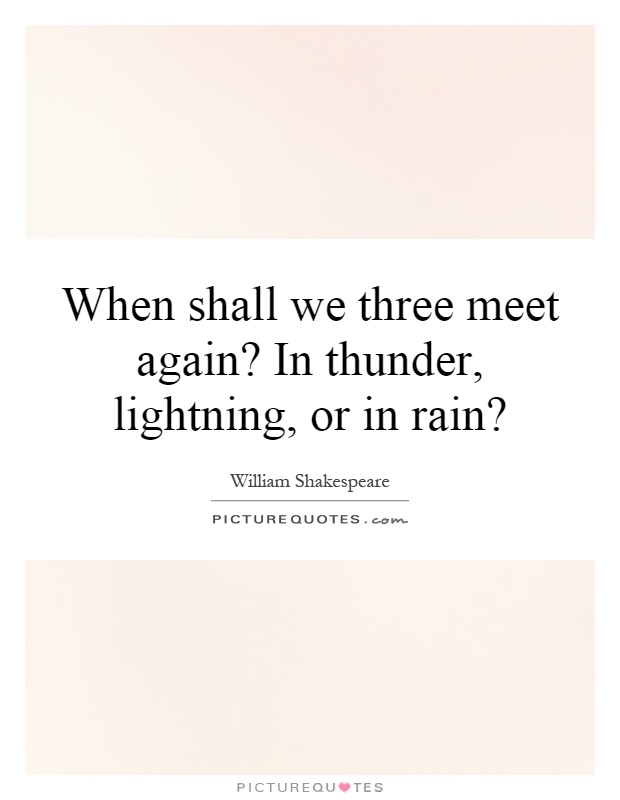When shall we three meet again? In thunder, lightning, or in rain?

When shall we three meet again? In thunder, lightning, or in rain?
The famous line "When shall we three meet again? In thunder, lightning, or in rain?" is from William Shakespeare's play Macbeth. These words are spoken by the three witches, also known as the Weird Sisters, as they plan their next meeting with Macbeth. This line sets the eerie and supernatural tone of the play, foreshadowing the dark events that are about to unfold.The three witches play a crucial role in Macbeth, as they are the ones who plant the seed of ambition in Macbeth's mind. They prophesy that Macbeth will become the King of Scotland, which sets off a chain of events that lead to murder, betrayal, and ultimately, Macbeth's downfall. The witches are mysterious and otherworldly figures, and their presence in the play adds an element of the supernatural.
The line "When shall we three meet again? In thunder, lightning, or in rain?" is significant because it highlights the witches' connection to the natural world. Thunder, lightning, and rain are all powerful and unpredictable forces of nature, much like the witches themselves. The use of these elements in the witches' meeting suggests that they have the ability to control and manipulate the natural world to achieve their own ends.
Furthermore, the line also reflects the witches' sense of foreboding and impending doom. The mention of thunder, lightning, and rain creates a sense of unease and tension, hinting at the dark and violent events that are to come. The witches' meetings are always accompanied by these ominous signs, signaling the chaos and destruction that they bring with them.
Overall, the line "When shall we three meet again? In thunder, lightning, or in rain?" is a powerful and evocative moment in Macbeth. It captures the supernatural and sinister nature of the witches, as well as the dark and ominous tone of the play as a whole. Shakespeare's use of language and imagery in this line helps to set the stage for the tragic events that will unfold in the rest of the play.












 Friendship Quotes
Friendship Quotes Love Quotes
Love Quotes Life Quotes
Life Quotes Funny Quotes
Funny Quotes Motivational Quotes
Motivational Quotes Inspirational Quotes
Inspirational Quotes